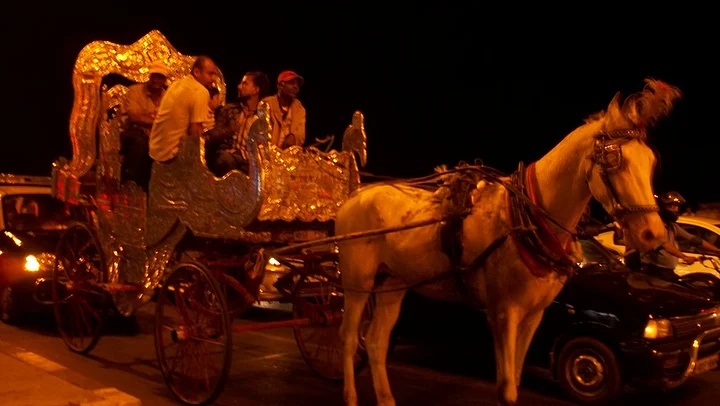Ribbed nags
under a masjid’s shadow,
the hack’s long
agony...
From ‘Song of a Hired Man’ by Adil Jussawalla
Reviewing my 2002 book, Ripping the Fabric: The Decline of Mumbai and its Mills, a former municipal commissioner unfairly titled it “A paean for horse carriages”. The implication was obvious: the book was a plea for a period the life of which had long ebbed, like the city’s iconic cotton mills. That the carriages are still named Victorias is ample proof.
Too Many Bans
My first reaction to the forthcoming ban on ghoda gaadis was similar to that on so many other bans nowadays: it was a ham-handed attempt to rob us Mumbaikars of one of our favourite indulgences.
As children, we would savour a ride on the resplendent Victorias. They could carry visiting relations, with a bunch of motley children. Unlike a car, taxi or bus, the carriage would permit us to look heavenwards and also catch a glimpse of Mumbai’s wonderful facades on arteries like DN Road. The clickety-clack of hooves was a familiar sound.
The lingering memory, however, is more olfactory than visual, as so many recollections are. It was the unforgettable odour of horse shit and hay which permeated whenever one got close to the animals. As younger children, the smell and sight of these bodily functions were an object of wonder; the young are curious about such details. The odour, however, was comforting more than confounding; it was part of the streetscape.
The clinching evidence that the Victorias were an indelible feature of the city’s past was the runaway success of the 1973 film, Victoria 203, starring Navin Nischol, Saira Banu, Pran and Ashok Kumar, with music by Kalyanji Anandji. There were Telugu and Tamil copy-cat movies.
A hack driver is the last person to have seen a murdered man and is wrongly sentenced to death. He could represent the quintessential aam Mumbaikar. It was remade by the director’s son a full 34 years later.
Don’t Shed Tears
Even for a card-carrying green like me, the cruelty to the horses wasn’t apparent. Since they were gaudily decked, I even thought that they were pampered. At most, I wondered about them being blinkered; I thought it was to protect them from much more ferocious animals – honking, polluting, unruly cars.
Their resplendent accoutrement, embellished with garish neon lights at night, blinded me to the cruelty to the horses as the carriages plodded along the Gateway of India or Marine Drive. The Animal and Birds Charitable Trust, which asked for a complete ban in the Bombay High Court, built on the investigations carried out, among others, by PETA – People for the Ethical Treatment of Animals.
PETA found living conditions at the tabelas – including one at Kamathipura, the city’s red light district – atrocious. Horses were tightly bound by their legs and heads, allowing them little to no movement. Some horses were so malnourished that their bones were protruding. Others were injured and otherwise debilitated with a body condition score of “very thin”. This obviously violated The Prevention of Cruelty to Animals Act, 1960.
The court, however, has taken a humanitarian view of some 700 families that depend on the Victorias and ordered their rehabilitation. They have, during the rise of the underworld in the 1970s, already been at the receiving end of dons like Haji Mastan and Yusuf Patel since they squatted on valuable real estate.
“The syndicate entered the arena dramatically on a wintry December night of 1979. The congested Belassis Road was suddenly engulfed in fire; high flames leapt out of the stables that lined the road: hundreds of horses neighed to death, and the fire brigade mysteriously failed to reach the spot in time. Yusuf Patel later erected buildings on the ashes.”
—Prabhat Saran, Senior Journalist
So we need shed no tears for the passing away of the Victorias, even while we revel in their memory. It is an ugly side of Mumbai which we should inter with the past.
(The writer is a Mumbai-based senior journalist.)
